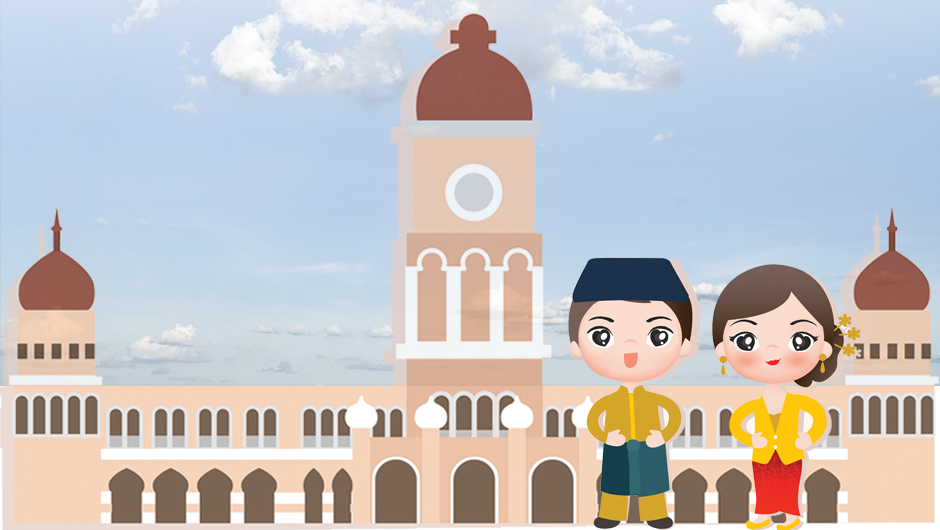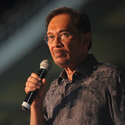Malaysia's Freedom Journey

Tens of thousands of people flocked the streets of Kuala Lumpur – from Merdeka Square to the National Mosque. The word “Reformasi!” was chanted. Among the oceans of people, Anwar Ibrahim, channeling his energy to the crowd, gave a powerful “reformasi” speech that echoed throughout the streets. "I have a dream that one day Malaysia will shine as a beacon of freedom, democracy, and justice. That government shall be accountable for its actions, that our fundamental liberties shall be honored", Anwar Ibrahim said. It was Sunday, 20 September 1998, a day that many Malaysians would never forget.
The “reformasi” movement reflected deep unhappiness about injustices. Malaysians stood up against their government, whose tentacles control elections, large parts of the media and the judicial system as well as large parts of the economy. One important result of the “reformasi” movement was the formation of Parti Keadilan Nasional (PKN) which led to the birth of what we know now as the People’s Justice Party (KEADILAN). A new political era started.
KEADILAN is a multi-racial party that is currently led by Wan Azizah Wan Ismail, a member of parliament and the wife of Anwar Ibrahim. KEADILAN leads the opposition-coalition, which has steadily improved its election results. Since 2009, the opposition has taken over governments in several states of Malaysia, including Penang and Selangor. On the national level, the opposition-coalition won 51% of the popular vote in 2013.
But gerrymandering and the first-past-the-post electoral system have kept BN in power. Malaysia still does not have fair elections. The government still controls TV, radio and large parts of the economy. Draconian laws still curb freedom of expression and assembly. Since 1998, opposition leader Anwar Ibrahim has spent a total of 9 ½ years in jail as a political prisoner. He is still in jail today.
Outside parliament, a civil society movement called Bersih (“Clean”) calls for free, clean and fair elections. Bersih started as a Joint Action Committee for Electoral Reform in 2005 and was officially formed a year later. On November 2007, Bersih organized its first rally in Kuala Lumpur. 40.000 people demonstrated, once again at Merdeka Square. As of 2016, Bersih has held 5 large rallies, sometimes ignoring the fact that no permit was issued. 62 NGOs endorse the movement.
Despite the tireless efforts of demanding freedom of speech, press freedom and freedom of assembly by the opposition coalition and a broad civil society movement, Malaysia still is far from democratic. According to the 2017 Freedom in the World Index by Freedom House, Malaysia’s press freedom status is “not free” while the net freedom status is partly free. Non-Muslims are forbidden to use the term “Allah” to refer to their God. The government tries to silence critics by using laws like the Sedition Act, the Special Offences (Special Measures) Act, the Communications and Multimedia Act, the Printing Presses and Publications Act and the Official Secret Act. Corruption is rampant. According to the US Department of Justice, which investigates money laundering, 4,5 billion US$ have been stolen from Malaysia´s state investment fund 1MDB. According to the DoJ, Prime Minister Najib Razak, his wife and her son (from a previous marriage) received hundreds of millions.
Malaysia is Southeast Asia’s third largest economy. It has oil, gas, and many other natural resources, and a huge service-sector and industries that produce chemicals, electronic goods, and much more. From the 1970s until the Asian Crisis in the late 1990s, Malaysia’s economy grew by more than 7% per year. It is said to have nearly eradicated poverty, with growth averaging at 5,7% in the last few years. However, the dominance of state-owned companies in too many sectors of the economy prevent Malaysia from achieving its goal to become a high-income country by 2020.
Since 1972, the Friedrich Naumann Foundation for Freedom (FNF), and its local partners – political parties and civil society organizations – promote democracy, human rights, and market economy in Malaysia.
I have a dream that one day Malaysia will shine as a beacon of freedom, democracy, and justice. That government shall be accountable for its actions, that our fundamental liberties shall be honored.
